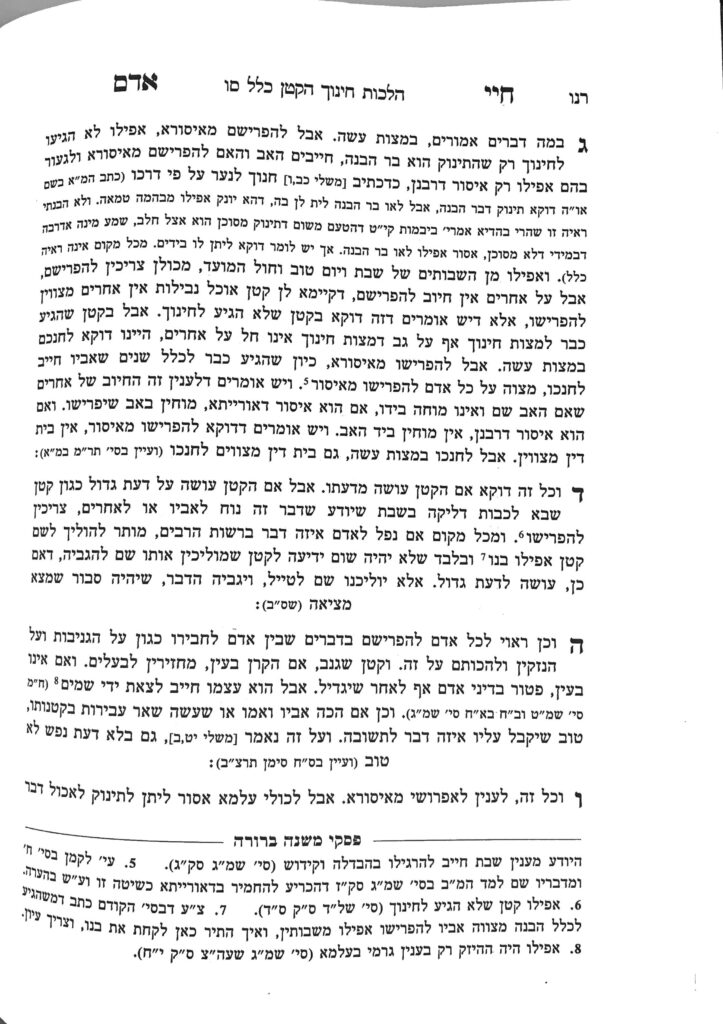We are beginning siman 4. The Chayei Adam adds a caveat to the machlokes regarding stopping a katan from transgressing mitzvos that we saw in siman 3. He writes that the machlokes only regards a katan transgressing mitzvos for his own benefit. If the katan was to transgress a mitzvah for the benefit of an adult, all agree that the adult must stop him. For example, if a child wants to put out a fire on shabbos because they understand that it is beneficial for their father or others, the adults must stop the child from doing so.
This caveat applies at any age, even before the age of chinuch. However, if the child is under the age of havanah; that is, under the age of understanding the concept of no (see shiur 1284), the halacha may be different. We will discuss this age more in siman 6.
If the child does not realize they are doing anything beneficial for the adult, it is muttar to benefit from the child’s transgression. Further, an adult can facilitate the child’s transgression, as long as the child does not realize the adult benefits from it. For example, if a person drops something in a reshus harabim on Shabbos, they can bring a child–even their own child(this is the opinion of the Chayei Adam; we will discuss this further in the next shiur)–to that area under some other pretense, for the purpose of the child seeing the object and bringing it home thinking they have acquired it.
Summary
- The Chayei Adam holds that once a child reaches the age of six or seven, the chiyuv chinuch extends beyond the father to other members of Klal Yisroel if the child is transgressing a mitzvas lo saasei on a deoraysa level. However, the chiyuv chinuch does not extend beyond the father in any other circumstance
- The above applies regarding a child transgressing a mitzvah for their own benefit. If the child of any age wishes to transgress any mitzvah for the benefit of others, all opinions agree that the adults must stop them.
- However, if the child does not realize they are benefiting the adult, it is muttar to benefit from the transgression, and even muttar for the adult to facilitate the transgression for their benefit.



